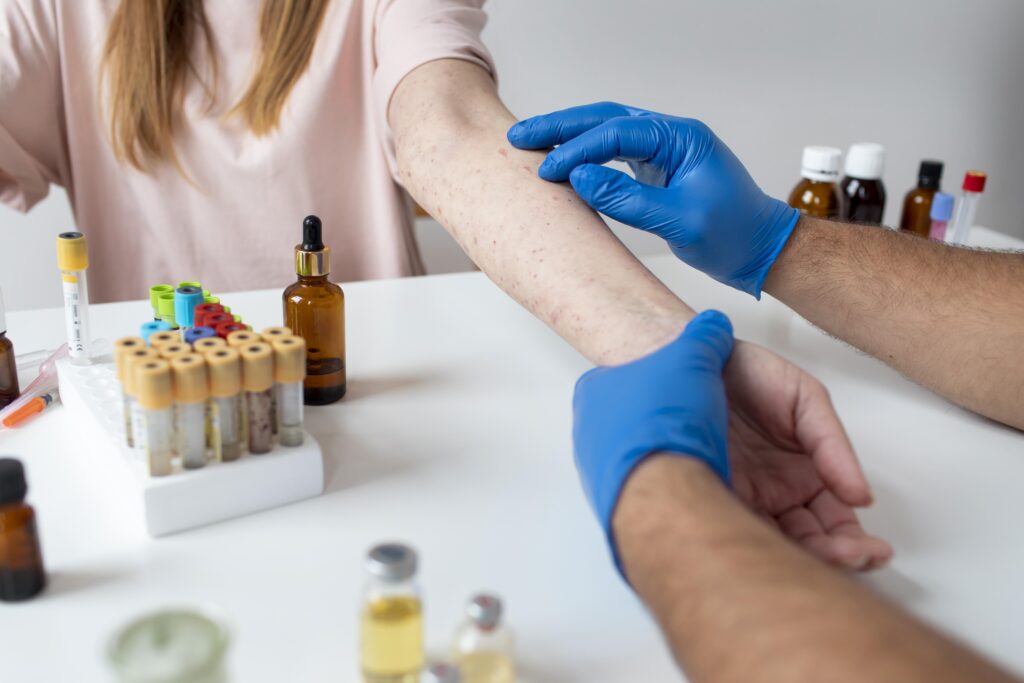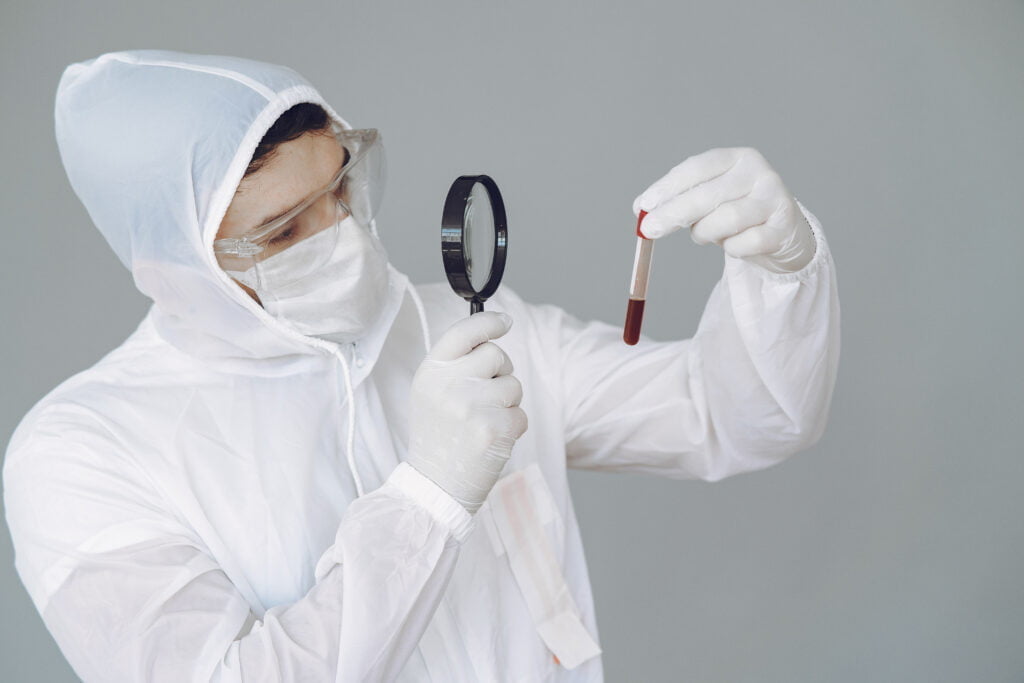Table of Contents
Introduction
What is dengue NS1 antigen positive means. Dengue fever is a mosquito-borne viral infection that affects millions of people around the world. One of the major diagnostic tools for dengue is the detection of NS1 antigen. In this blog post, we will discuss in detail what dengue NS1 antigen positivity means, its significance in the diagnosis of dengue fever, and its impact on patient care.
Overview of Dengue Fever
Before we delve deeper into NS1 antigen, let us briefly understand dengue fever. Dengue is caused by dengue virus, which is transmitted to humans through the bites of infected Aedes mosquitoes, primarily Aedes aegypti. This virus belongs to the Flaviviridae family and has four different serotypes: DEN-1, DEN-2, DEN-3, and DEN-4.
Symptoms of dengue fever can range from mild to severe and may include high fever, severe headache, pain behind the eyes, joint and muscle pain, rash, and slight bleeding. Severe dengue outbreaks can lead to potentially fatal dengue hemorrhagic fever or dengue shock syndrome.
Diagnosis of What is dengue NS1 antigen positive means
Timely and accurate diagnosis is important for effective management of dengue. Traditional diagnostic methods include serological tests to detect antibodies and molecular tests such as polymerase chain reaction (PCR) to identify viral RNA. However, the NS1 antigen test has emerged as a valuable tool for early and rapid detection of dengue infection.
What is NS1 antigen?
NS1, or non-structural protein 1, is a glycoprotein produced by dengue virus during infection. The NS1 antigen is released into the bloodstream early in infection, often before symptoms appear. This makes detection of NS1 a valuable tool to diagnose dengue in the early stages of the disease.
Understanding Dengue NS1 Antigen Positivity
A positive result for dengue NS1 antigen means that the person has been infected with the dengue virus and is currently experiencing an active infection. The test detects the presence of NS1 antigen in the patient’s blood, confirming the acute stage of the disease.

Significance of NS1 antigen positivity
Find out quickly:
One of the primary benefits of the NS1 antigen test is its ability to quickly detect dengue infection. Early diagnosis allows healthcare providers to immediately initiate appropriate management strategies.
Difference from other diseases:
The symptoms of dengue are similar to those of other febrile diseases like malaria and chikungunya. NS1 antigen testing helps differentiate dengue from these diseases, enabling targeted treatment and preventing unnecessary medications.
Monitoring disease progression:
NS1 antigen levels can be monitored during the course of the disease. This information is valuable for health care professionals to assess disease progression and make informed decisions regarding patient care.
Reducing Complications:
Early detection through NS1 testing can help in timely identification of severe cases. This allows healthcare providers to intervene quickly, reducing the risk of serious complications related to dengue.
Interpreting NS1 test results
While a positive NS1 result is indicative of an active dengue infection, it is necessary to interpret the results in the context of clinical symptoms, patient history, and other diagnostic tests. False positive and false negative results can occur, so a comprehensive approach to diagnosis is important.
false positive:
Certain factors may contribute to false-positive NS1 results. Cross-reactivity with antibodies from previous flavivirus infection (for example, Zika or West Nile virus) may lead to false results. Additionally, technical problems or sample contamination during testing may affect the accuracy of the results.
false negative:
False negative results may occur, especially in the early stages of infection when NS1 levels may be low. In such cases, additional diagnostic testing, such as PCR or serological testing, may be necessary for confirmation.
conclusion
In conclusion, a positive result for dengue NS1 antigen indicates an active dengue infection and plays an important role in early diagnosis of the disease. The test’s ability to provide quick results contributes to timely patient management, reducing the risk of serious complications associated with dengue.
However, it is important to interpret NS1 results carefully, considering other clinical and laboratory parameters. Like any diagnostic tool, NS1 antigen testing is not without limitations, and healthcare providers should use a holistic approach to dengue diagnosis and management.
Public awareness about dengue, its symptoms and the importance of early diagnosis is key to reducing the impact of this potentially serious disease. Research and advancements in diagnostic technologies continue to improve our ability to detect and manage dengue, ultimately contributing to improved outcomes for people affected by this global health concern.

Frequently asked questions (FAQ) about dengue NS1 antigen positivity.
- What is dengue NS1 antigen?
The NS1 antigen is a glycoprotein produced by dengue virus during infection. It is released into the bloodstream at the beginning of the disease.
- What does it mean to be NS1 antigen positive?
A positive NS1 result indicates active dengue infection. The test detects the presence of NS1 antigen in the blood, which confirms the acute stage of the disease.
- How is the NS1 antigen test done?
The assay for NS1 antigen is a blood test. A small sample of blood is collected from the patient, and the presence of NS1 antigen is detected using specific diagnostic kits.
- When is the NS1 antigen test typically conducted?
NS1 antigen testing is usually done in the early stages of dengue infection, often within the first few days of symptom onset. It provides quick results, helps in early diagnosis.
- What are the benefits of NS1 antigen test?
NS1 antigen testing helps in early detection of dengue, helping healthcare providers to initiate timely management. It also helps differentiate dengue from other febrile diseases and monitor disease progression.
- Can NS1 antigen test results be false-positive?
Yes, false positives may occur due to cross-reactivity with antibodies from previous flavivirus infections (for example, Zika or West Nile virus) or technical problems during the test.
- Can NS1 antigen test results be false-negative?
Yes, false negative results may occur, especially in the early stages of infection when NS1 levels may be low. In such cases, additional diagnostic tests may be necessary for confirmation.
- How is NS1 antigen positivity treated?
Treatment of dengue is primarily supportive and involves measures to reduce symptoms. Early detection through NS1 antigen testing allows timely intervention, reducing the risk of complications.
- What complications are associated with severe dengue?
Severe dengue can lead to complications such as dengue hemorrhagic fever or dengue shock syndrome, which can be life-threatening. Early detection through NS1 antigen testing helps prevent and manage these complications.
- Is NS1 antigen test the only way to diagnose dengue?
No, while NS1 antigen testing is valuable for early diagnosis, it is not the only method. Other diagnostic tools, such as PCR and serological testing, can be used in combination to provide a comprehensive understanding of the patient’s condition.
- How can dengue be prevented?
Dengue prevention includes measures to control mosquito breeding, such as eliminating standing water, using mosquito repellents, and wearing protective clothing. Public awareness and community efforts are necessary for effective prevention.
- Is there any vaccine for dengue?
As of my last knowledge update in January 2022, dengue vaccine is available in some countries. However, its use may vary, and it is necessary to consult health professionals about vaccination options and recommendations.

